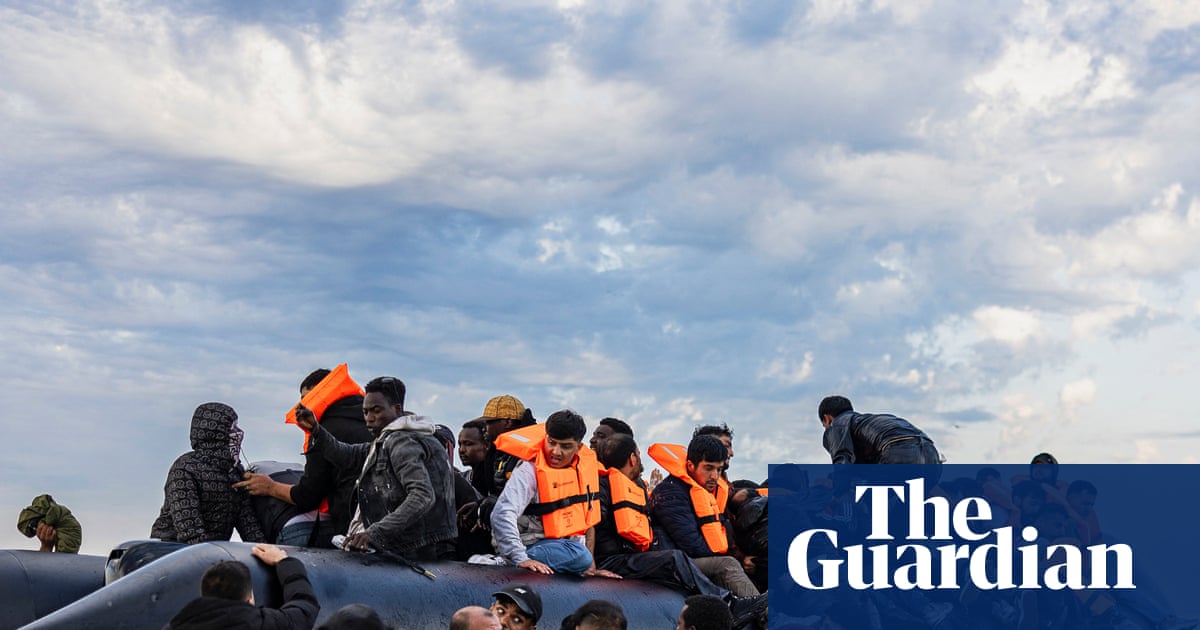People are trying to escape rapid climate change, famine, oppressive governments and war across Africa, Asia and the Middle East.
In 2024, nearly half of those arriving in small boats were from Afghanistan, Syria and Iran, where there have been food shortages, a savage civil war, and campaigns to oppress women and minorities, respectively.
In the first three months of this year, people coming from Eritrea made up 20% of new arrivals for the first time. The Eritrean government has been accused of widespread human rights abuses while a famine exacerbated by drought threatens 1 million Eritreans – approximately 20% of the population – according to the World Food Programme.
They come to the UK despite the Channel becoming an increasingly dangerous route. In 2024, the UN’s International Organization for Migration (IOM) Missing Migrants Project recorded the highest number of deaths and missing persons in the Channel, with 82 people losing their lives, at least 14 of whom were children.
Many refugees and economic migrants are drawn to the UK because of family and historical ties, making it easier to settle in the country and understand its institutions.
English continues to be the official language across large swathes of Africa and Asia. There are also perceptions that the UK is a safer and more welcoming country for minorities compared with many other countries in continental Europe.
People seeking asylum in the UK must usually arrive on British shores to apply for refuge.
Most people are not eligible to apply for asylum from their home countries. Unless they are applying through one of a small number of restricted routes, applicants must be present in the UK to make a claim.
Refugee charities have called for new safe and legal routes to be opened for applicants, so they do not have to get into overcrowded boats run by smuggling gangs. The UK governments under Labour and the Tories have declined to do so, usually because of the concern that the country will be overwhelmed and it could act as a “pull factor”.
The successful enforcement of other unauthorised modes of entry, such as in the back of lorries and on the Eurotunnel, has contributed to the number of people attempting to cross in boats, according to UNHCR, the UN refugee agency.
After 2014, the British and French governments invested in enhanced security in and around French ports and the Eurotunnel.
These enhanced security measures – including more perimeter fencing, additional CCTV, increased patrols, CO2 detectors, thermal imaging, and heartbeat monitors – meant that people attempting to reach the UK found it harder to sneak into the country by other means.
Smuggling boat gangs have stepped in to meet the demand and have become larger and increasingly professionalised. Prices for journeys have fallen from about €14,000 in 2018 to under €4,000 in 2024, while the numbers on each boat have increased to more than 60.
Starmer’s plans to smash the gangs have not yet had time to take effect.
The prime minister has introduced a number of measures that are expected to cut the smuggling gangs’ operations, but they will take time, ministers have said. These include a “one in, one out” policy announced last week, which will mean that for every migrant returned to France after crossing the Channel in a small boat, the UK will allow one asylum seeker to enter through a safe and legal route.
Other measures include powers to trace suspects and freeze assets of smugglers, and an increase in the number of specialist investigators. The border security, asylum and immigration bill, which will bring in counter-terror-style powers to help identify and disrupt smuggling gangs, has not yet been passed.
There were an unusually high number of days with calm and warm weather at the start of this year, government sources said, which also contributed to the high number of crossings.
